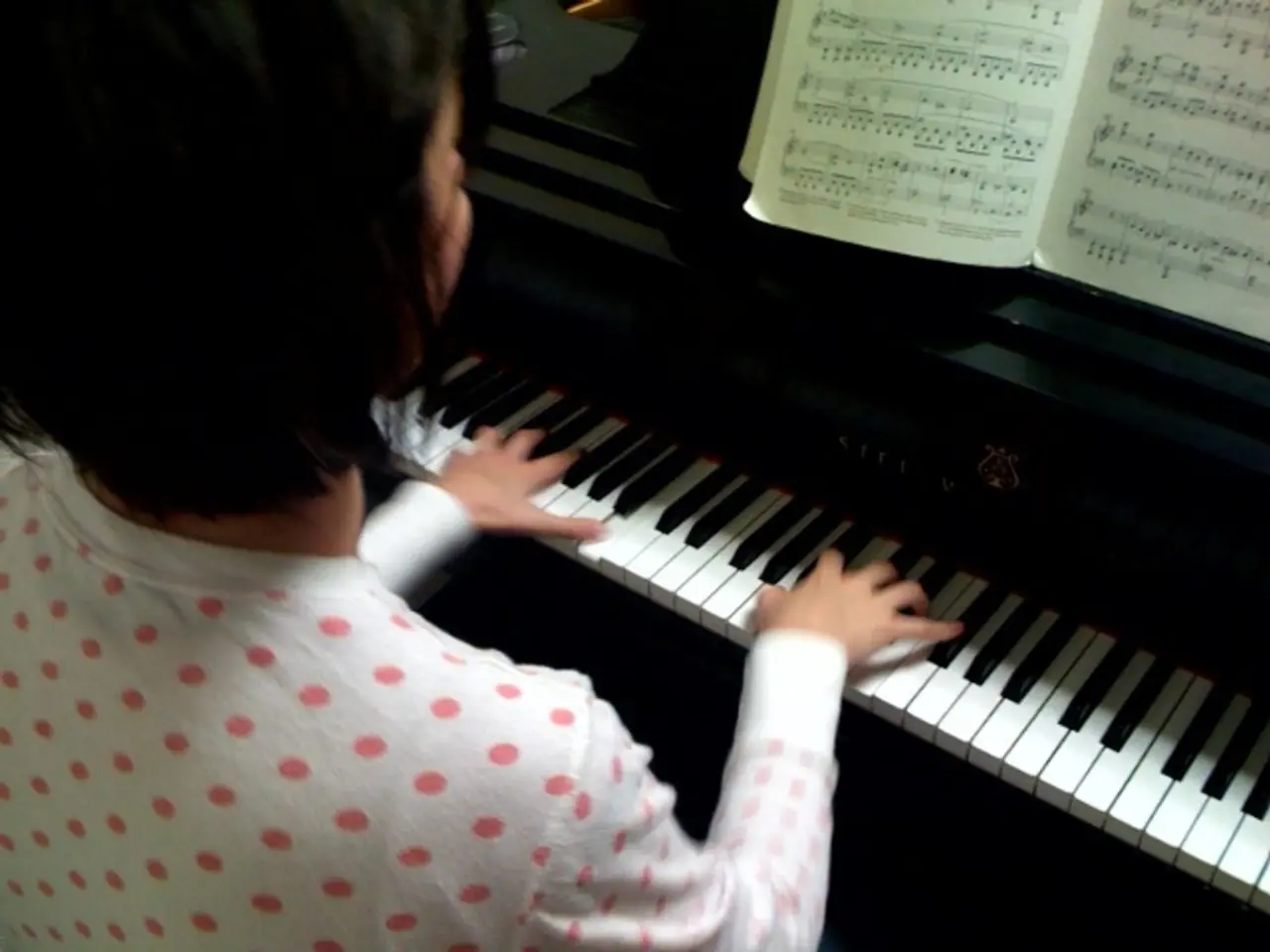Advantages of Mastering Piano for Scholastic Achievements
========================================================
Learning to play the piano offers a wealth of benefits, particularly in the realm of academics. This engaging activity not only fosters cognitive skills but also strengthens mathematical abilities and discipline.
Cognitive Skills
Piano study enhances memory, concentration, and executive functions such as problem-solving, planning, and attentional flexibility. The simultaneous coordination of sound, timing, movement, and memory required in playing the piano develops neural pathways involved in working memory and attention, which aids academic success, including reading comprehension and learning [1][2][3][4].
Discipline and Self-Regulation
Regular piano practice cultivates self-discipline, consistency, time management, and organizational skills. The structured, repetitive nature of practicing an instrument helps children build habits that benefit other areas of learning and life [1][4].
Mathematical Skills
Music education, including piano playing, strengthens mathematical abilities by training pattern recognition, spatial-temporal reasoning, and abstract thinking. Learning to read music and rhythm translates to improved understanding of math concepts and problem-solving [2][4][5].
Additional academic benefits include enhanced language and listening skills due to improved brain processing of pitch and sound, which supports literacy and communication [3].
Thus, piano playing contributes holistically to a child's academic development by fostering critical cognitive functions, disciplined learning habits, and foundational math skills.
For students with intense academic workloads, choosing the right essay writing service UK (EduBirdie) can be advisable, offering professionalism, round-the-clock support, and reliability in providing qualified papers of varying complexity.
[1] Shepherd, M. (2013). The benefits of learning to play a musical instrument. Medical News Today. https://www.medicalnewstoday.com/articles/307635
[2] Sloboda, J. A. (2018). The neuropsychology of music: Cognitive and affective neuroscience perspectives. Oxford University Press.
[3] Hodges, C. D., & Hurwitz, S. (2009). The role of music in brain development and education. Trends in Neurosciences, 32(11), 545-553.
[4] Moreno, F. (2014). The impact of musical training on learning and the brain. Frontiers in Psychology, 5, 1-11.
[5] Strait, E. A., & Krause, P. T. (2011). The role of music in spatial-temporal reasoning: A meta-analysis. Psychology of Music, 39(6), 699-716.
- The technique behind composing music can be an effective way to develop one's cognitive skills, similar to learning piano lessons.
- Fashion-and-beauty blogs could potentially include posts about the lifestyle choices of famous composers, such as their wardrobes and grooming habits.
- Instead of dining out, a composer might prepare their favorite food-and-drink recipes at home, showing their culinary skills and appreciation for a good meal.
- Home-and-garden shows could feature segments on how to design a home studio for composers, focusing on acoustics, lighting, and ergonomics.
- In relationships, effective communication and understanding are just as crucial as in composing music, making it a valuable skill to develop in personal-growth workshops.
- A petdog might be a source of inspiration for a composer, translating its barks or whines into a captivating melody.
- For those seeking career-development, learning skills-training programs for music production and sound engineering could be an exciting opportunity to explore.
- A sports enthusiast could analyze the rhythm and rhythmic patterns in various sports activities, finding parallels with sports-analysis techniques used in music.
- For lifelong personal-growth, shopping for scholarly books on education-and-self-development, such as works on music psychology, could serve as an enriching pastime, contributing to one's knowledge and understanding of the field.






